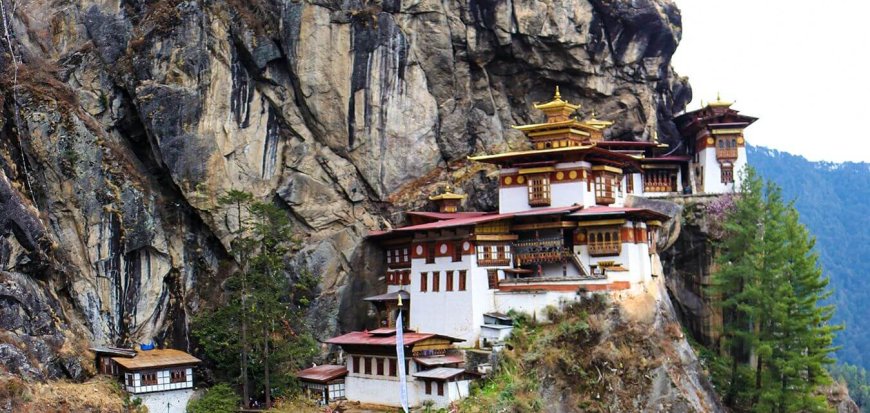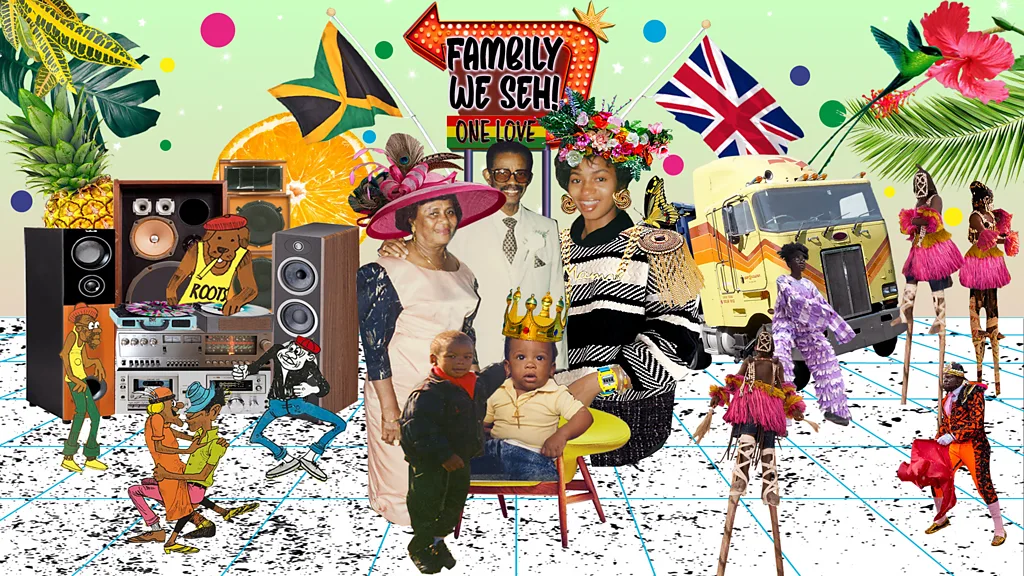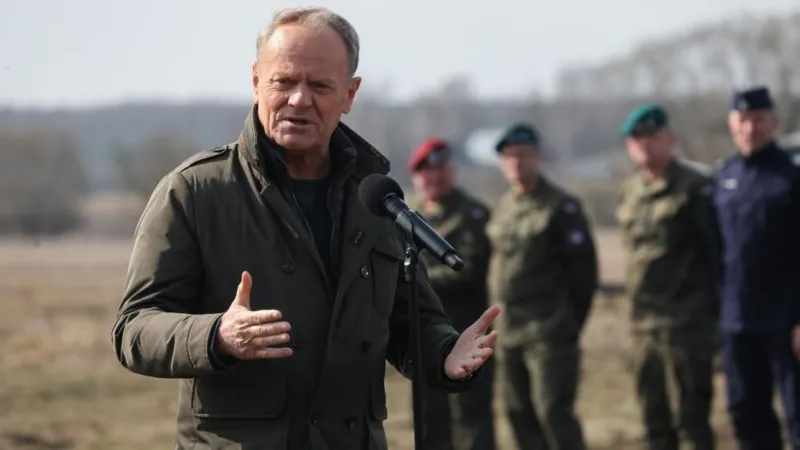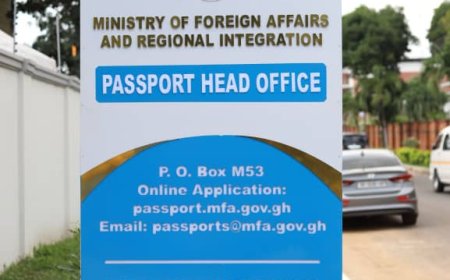Life in Bhutan

CNN
Located between China and India, the world’s two most populous countries, high in the Himalayas, sits Bhutan. Known as the Land of the Thunder Dragon, it’s a Buddhist monarchy of 700,000 residents that has only had regular television broadcasts since 1999.
The birthplace of the Gross National Happiness Index, a system intended to look after the well-being of citizens and the environment.
As this once-hidden kingdom gradually opens up to the world, those things alone make it an intriguing travel destination, alongside historic temples, un-crowded hiking and trekking trails and stunning Himalayan landscapes.
But is it really happy? And what does that mean for people living here? Its citizens have a variety of answers.
“The first thing (foreigners) talk about is the gross national happiness that we promote in Bhutan,” says KJ Temphel, founder of the conservation group Green Bhutan. “I think definitely living in Bhutan, for me personally, it’s quite peaceful and I’m very happy to be here.”
The World Happiness Report, published annually by Oxford University and the United Nations, puts Nordic nations Finland, Sweden and Denmark at the top of its happiness rankings. The list ranks 143 nations and territories around the world – but Bhutan isn’t one of them.
“I must say that our people were actually happy, but now due to all those modern things and all those technologies coming in, somehow we are disconnected more and then we tend to be more depressed and more sad,” says Tandin Phubz, a creator of the Humans of Thimpu Facebook page, which features photos and profiles of everyday people in the capital in the style of Brandon Staunton’s famous Humans of New York project.
“Bhutan is a Buddhist country. Spirituality and religion have a very strong effect,” he adds.
"The thing is that with all those gadgets and televisions (people) are somehow distracted from this. They tend to forget to do their morning and evening prayers. They’re on the phones watching TikToks, swiping up and down.”
Encountering the world
Modernization is a relative term in Bhutan. Locals will proudly tell you that Thimpu is the only world capital without any traffic lights, and shops and restaurants are locally owned and run. Bhutan is the rare world destination that isn’t full of international brands. While there are a few – outposts of the upscale Le Meridien and Aman hotel chains, for example – even the capital is mostly bereft of corporate logos.
Entrepreneur Chokey Wangmo thinks it’s unlikely that corporations like McDonald’s and Starbucks would ever come to Bhutan – not because of local policies or customs, but because it wouldn’t be a profitable market for them.
“Our population is so (small), we wouldn’t be able to even get the money back for the franchise in the next 10 years,” says Wangmo, who runs several businesses in the southern Bhutanese town of Gelephu, including a coffee shop.
“Even if the whole population comes and takes one coffee every day, it will be really hard for them to pay back (the franchise fee).”
Wangmo has a front-row seat to how Bhutan is changing. Gelephu, a town of about 10,000 people near the border of India’s Darjeeling state, has been hand-selected as the site for a new “Mindfulness City,” a project spearheaded by the country’s king, Gyalpo Jigme Khesar Namgyel Wangchuck.
It seems impossible to imagine Bhutan without the country’s fifth monarch. Portraits of the king and royal family – he and Queen Jetsun Pema have three young children – are in nearly every home and business in Bhutan, displayed the way other nations might hang up their national flags. Photos of the king are omnipresent in the country’s Buddhist temples, placed alongside pictures of lamas and laden with offerings of flowers, fruits and sweets.
"If you look at the houses of the private enterprise, the rich people in Bhutan, their houses are huge and quite decorative,” says Temphel. “But if you look at our royal family houses, they’re very small and they’re just a simple living and I think humble. And that’s how it matters. How they think about the country and the people, I think. It’s not thinking about themselves, but they’re thinking about the people in the country.”
A generation on the brink
A growing number of young people are leaving Bhutan to study and work overseas. Phubz, who is in his 20s and currently lives in Perth, Australia pursuing a master’s in communications, is part of Bhutan’s new generation, balancing his love of family and heritage with a desire to see more of the world.
“There’s this Bhutanese quote where it says that, ‘You do whatever the neighbor does. If he or she goes and milks the cow, you go and milk the cow. If they go and work in the fields, you go and work in the fields.’” He compares this to the current trend of young people leaving to work and study abroad.
“Parents feel that, ‘Oh, that neighbor’s son or daughter is going to Australia, I have to send (mine) as well.’”
Temphel echoes those sentiments, saying he is worried that Bhutan will have a big population imbalance with more old people than young ones, similar to other Asian countries like Japan and South Korea.
“My worry is after seven years staying in other countries, you are more acquainted with the custom, the habits that you have in different countries, it would be very difficult for them to adjust immediately in Bhutan,” he says.
Those Bhutanese who do want to explore the wider world can’t just grab their suitcases and head off. Only three countries have diplomatic embassies in Thimpu, which means that most international relationships have to go via India. Bhutan’s currency, the ngultrum, is pegged to the Indian rupee, and most shops and businesses will accept both.
The Henley Passport Index ranks Bhutan’s passport 87th most powerful in the world, with its holders able to access 55 places visa-free – a list that does not include the United States, Australia or the European Union.
Bhutan’s sole international aviation hub, Paro International (PBH), is one of the most beautiful airport descents in the world – but also one of the most logistically challenging. Located in a valley between two mountains, only smaller planes can come in and out safely. As a result, Paro only offers short hops to nearby Bangkok, Dhaka, Kathmandu and New Delhi.
Some of those logistics may become easier, though. In addition to being the home of the new Mindfulness City, Gelephu has been chosen for a new international airport. Its flatter terrain means that there will be space for longer runways – and, likely, jumbo jets that can go all the way to the Middle East, Europe and beyond.
According to government data, the per capita income in Bhutan is 115,787 ngultrum ($1,387) per year. When a flight from Paro to Bangkok begins at $350, international travel is still out of reach for many Bhutanese.
Foreigners who want to emigrate to Bhutan, though, don’t have it easy. Only Bhutanese citizens can buy land, and the only way to get Bhutanese citizenship – even if you’re married to someone from Bhutan – is by the personal approval of the king.
What comes next
Wangmo, who spent her student years in India before returning to Bhutan, has been able to see her homeland from both a local and foreign perspective.
“The way we are living is old now,” she says. “We have to learn and accept new ways.”
She gives several examples of workplace culture that she thinks have made it harder for business owners: for example, she couldn’t find a bank in Bhutan that would allow her to fill out account paperwork online instead of going in person.
Wangmo says that things like meeting scheduling, out-of-office messages, and online customer service generally don’t exist in Bhutanese offices.
Most jobs in Bhutan require traditional dress – a one-piece garment called a gho paired with knee-high socks for men, and a two-piece jacket and skirt set called a kari for women – to be worn while working, but some will swap into jeans and T-shirts on weekends.
Temphel, of Green Bhutan, says that the Bhutanese mindset is community-centric, where everyone knows each other and looks out for each other. It’s common for neighbors to stop by uninvited and for the whole village to visit a new baby or welcome someone back from the hospital.
For Wangmo, this sense of community spirit can sometimes be stifling. She says that she has a hard time telling people that she wants to eat dinner alone or that she doesn’t want guests over every day.
And despite Bhutan’s free public health care system, she believes one critical thing is missing – honesty around mental health.
At Coffee Cat Café, which she owns and manages in Gelephu, patrons are encouraged to talk about their mental health with each other. Wangmo says that many people hit a breaking point during the pandemic as forced isolation took them out of the networks they knew so well.
“Nobody was socializing because of the Covid thing,” she says. “And then, once they started talking, they understood how important it was to talk about what they were feeling. And I think that is really when the mental health (conversation) really came into light. Mental health, I think, it’s a very, very personal struggle.”
To make it easier for people to open up, Coffee Cat Café holds events like poetry readings. There are motivational quotes written on the walls and a well-stocked lending library. On their social media accounts, there are campaigns about ending period stigma and encouraging female entrepreneurs.
For Wangmo, who is training her restaurant and café staff to have a more tourist-centric mindset, change hasn’t come quickly enough.
“Just because we are wearing different clothes and having all these cars from other countries, it’s not going to get us there,” she says.
“(Change is) going to hit us hard. Some people are not happy, some people are scared, they don’t know what’s going to happen, if they can survive it. But when we are one faith, we have to do this, there’s nothing we can’t do.”
























































